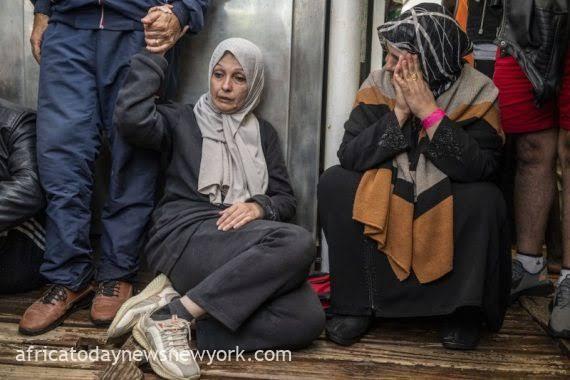The European Union member states, along with the EU Parliament, have reached consensus on a substantial overhaul of the European asylum system, ushering in significantly more stringent asylum procedures.
Announced on Wednesday, the laboriously negotiated compromise includes various augmentations and enhanced regulations within the current framework, seeking to diminish instances of irregular migration to the European Union.
‘It’s been a long road to get here. But we made it. Europe is finally delivering on migration,’ said European Commission Vice-President Margaritis Schinas on X, describing the deal as a “breakthrough.”
European Parliament President Roberta Metsola said Wednesday ‘will go down in history.
‘The day the EU reached a landmark agreement on a new set of rules to manage migration and asylum.’
Since 2015, when the EU witnessed record-breaking migrant arrivals, the reform has been the focal point of extensive efforts and laborious work.
Right-wing governed countries, notably Hungary, fervently supported the reinforcement of existing rules, sparking concerns from aid organizations and Europe’s political left regarding the potential deterioration of human rights.
Read also: How UK Paid Rwanda An Extra £100m In Fresh Asylum Deal
The reform ‘will ensure that there is an effective European response to this European challenge,’ said European Commission President Ursula von der Leyen.
‘It means that Europeans will decide who comes to the EU and who can stay, not the smugglers,’ she added.
For instance, the reform outlines a considerably stricter protocol for managing individuals from countries considered relatively safe.
Asylum seekers will be placed in reception centers under strict regulations until a legal decision is reached on their asylum application.
The agreement, celebrated as a “historic deal” by the European People’s Party, composed of conservative political groups in the European Parliament, drew swift criticism from left-leaning EU lawmakers.
‘The negotiators agreed to undermine the right to seek asylum,’ said German EU lawmaker Damian Boeselager, who is a member of the European Greens.
‘This new system will make sure we have prison camps at our borders and should have never been accepted,’ Boeselager said.
In the new system, the allocation of individuals seeking protection among the European Union’s 27 member states undergoes restructuring through a novel set of rules known as a solidarity mechanism.
Countries that choose not to accommodate refugees must provide support through alternative means, like financial compensation.
The agreement’s confirmation by the plenary of the European Parliament and EU member states is still pending, a process typically treated as a formality.
